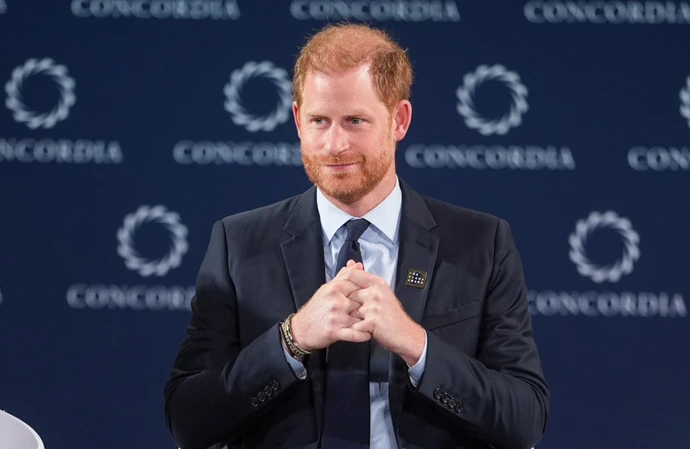Prince Harry fears smartphones are 'stealing young people's childhood'
Prince Harry has said that he believes smartphones are "stealing young people's childhood".

Prince Harry believes smartphones are "stealing young people's childhood".
The Duke of Sussex marked World Mental Health Day on Thursday (10.10.24) by holding a discussion with Jonathan Haidt, a social psychologist who wrote 'The Anxious Generation', to examine social media and technology's impact on the younger generation.
In a video shared with Fortune Well, as part of his Archewell Insight sessions, Harry said: "In many cases, the smartphone is stealing young people’s childhood."
The author agreed, noting those born after 1995 hit puberty with high rates of anxiety and depression and added: “Young people trade in their flip phones for smartphones, and now with a front-facing camera, high-speed internet, a million apps that are competing with each other to hook kids’ attention.
"So, the ‘anxious generation’ is helping us understand the incredible destructive force of this transformation of childhood … and what we can do now to stop that from happening and to help those who already have been through it.”
Jonathan advocates for no social media before 16 and no smart phones before high school.
Harry noted: “It’s very easy for social media companies to point the finger at parents and say, ‘Well, you know, this is down to you. This is down to your parenting.’”
But Jonathan argued: “If there were some parents who were getting this wrong and most parents were getting it right, then I’d be very receptive to that argument.
“But once kids get a phone and social media, the rest of family life turns into a fight over screen time. And this is happening everywhere."
The prince - who has Prince Archie, five, and Princess Lilibet, three, with wife Meghan, Duchess of Sussex - sees the devices as a "double edged sword" because he recognises that some parents buy them for their children to help keep them safe.
He said: “It’s a double edged sword. They want them to have their phone at school in case of emergency, but once, like any kid, you have your phone, even if you’re told you’re not allowed to download that app, kids have a way of working around it.”
Jonathan argued: "If you want to give your kid a phone, so if anything goes wrong they can call you, great. Give them a phone. Just don’t give them a supercomputer connected to everyone in the world… They don’t need that."
Harry then raised the idea of social media having a positive element to offer an "outlet" to children who don't feel able to speak out.
He said: “Social media, we know, to a large extent, is giving an outlet, an added resource, to kids that perhaps don’t feel comfortable coming to us to talk about their issues and their troubles and their worries.
“Kids online will be feeling more connected with complete strangers on social media. So how do you, if you’re a parent, know that your kid is getting good out of social media?”
The psychologist insisted it is "just not true" that "social media is a lifeline for LGBTQ kids, for kids from marginalised communities".
He said: "The internet solved all these problems in the ’90s. If you’re a gay kid, you’re not out to anyone in a rural part of America or England, the internet was amazing. You could find information, you could find people like you, and you could communicate.
"[But with social media] it’s no longer even about just me connecting to you.
“It’s now about an algorithm-driven news feed that sends content to you. This is not what they need. If you have any special interest, you can find that with Google. You don’t need an algorithm to feed you stuff."







